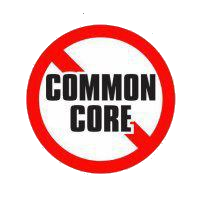With permission to post:
So your school goes above and beyond Common Core. Should you still be worried?
By: Ann Marie Banfield
Lately I’ve been hearing from parents and even school board members that they are not concerned about the Common Core Standards because their district already goes above the new National Standards in English/Language Arts and Math. So should parents still be concerned? What should School Board Members do?
These are the questions that seem to be surfacing lately among many parents who are still concerned their district isn’t doing enough even after they’ve been told the local standards and curriculum exceed the Common Core Standards.
My answer is a simple YES. You still should be concerned and I’ll explain why.
The Common Core (CCSS) has many flaws and going above the CCSS does not fix all of the problems.
I recently had a discussion with a School Board Member in New Hampshire who seemed to understand Common Core didn’t go far enough. He was proud of the higher-level math courses that were still being offered in his district, so why should anyone be concerned? In fact, he was fine with using Common Core curriculum because they still offered the higher-level math classes for the students.
Offering higher-level math classes in high school is certainly good for the students. However preparing those students for those higher-level classes may be a problem that is not being addressed.
For instance he acknowledged that they were using Common Core curriculum. If that is true, then there is a good possibility that students will never reach those higher-level math classes he boasted about.
It’s great to offer Calculus, Pre-Calculus and Trigonometry, but if the students follow the Common Core path, many will never reach some of those higher-level classes.
For instance, one of the biggest problems with Common Core is that in the lower grades, CCSS Math Standards puts students on a path to Algebra I in 9th grade. Using the old and SUPERIOR California Math Standards, students were on a path to COMPLETE Algebra 1 by the end of 8th grade.
Students in the high performing countries are starting Algebra 1 sometimes by 6th and 7th grade. Under Common Core, students are at least two years behind their international peers when they enter high school. This also proves that under Common Core, our students will not be able to compete with their peers in the high performing countries.
Offering the higher-level classes is good and technically that would mean the school is going above the Common Core Standards. However if students follow the the Common Core path k-8, many will never reach Calculus. That will be a real problem for students who want to enter into a STEM program in college (Science, Technology, Engineering and Mathematics).
There are also developmentally inappropriate standards both in the Math and English Common Core Standards.
Asking students to learn material that is not appropriate for their age group can lead to frustrated children. We are already seeing numerous examples from parents across the country showing homework that not only confuses their child but confuses the parents too. Many of these parents are professionals who’ve earned a college degree in the math and science field.
Using confusing math practices that cause children to struggle can lead them to tutors or worse to hate the subject.
If a school district is going above and beyond the Common Core Standards, parents still need to be very concerned about what curriculum will be chosen. If your children are assigned Common Core textbooks and curriculum that leaves them angry and frustrated because they are confused by an assignment, that can be a serious problem.
The first thing to do is make sure your district does include those higher level math courses that were completely ignored by the developers of Common Core.
Look at the curriculum chosen. If the textbooks and curriculum say “Common Core” does it include material that is developmentally inappropriate for children? Will your children become confused by the multiple algorithms and strategies in mathematics that often kill the love of learning?
Has your district given you a clear indication when the majority of students will complete Algebra I. If it’s not by grade 7 or 8, then your children may be on a path that will make it difficult for them to qualify for a selective University if they want to go into the STEM fields.
Has there been a shift away from classical literature that helps students develop a rich vocabulary and can significantly improve their writing skills? Great readers become great writers. However with Common Core, there is a fundamental shift away from the classics to informational texts. This dumbs down the English/Language Arts content and can be a real issue when they begin their college application process.
In conclusion, going above and beyond Common Core is not a simple solution to a complex problem like Common Core. This is exactly why the New Hampshire Department of Education failed the public schools in New Hampshire. Had they done their job under the guidance of Governor Hassan and developed quality academic standards we could all trust in, parents wouldn’t be in the position of now having to do extensive research.
As your representatives, your School Board Members should be able to identify the problems with the Common Core Standards, and show you exactly how the Administrators have corrected and exceeded them in ALL areas. Simply saying the district has gone ABOVE and BEYOND Common Core is not good enough.
If they have not done this at the local level, then it’s important for parents to begin calling upon their Board members to provide this information to the public.
Only then can parents truly feel comfortable with any district that makes the claim that they go above and beyond Common Core.
